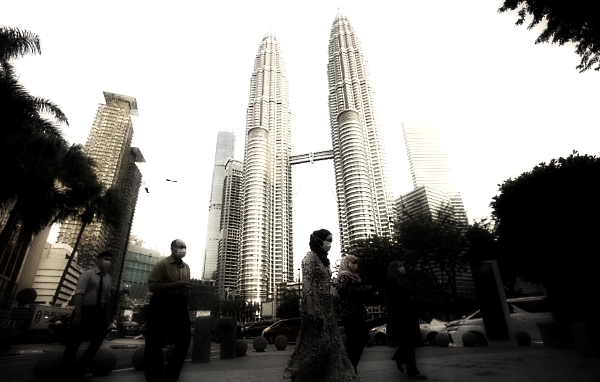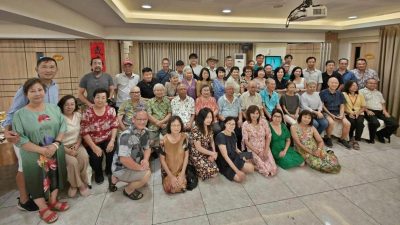Sin Chew Daily
The numbers of daily new coronavirus infections in the country remain high at around five or six thousand, with more than 60 deaths reported each day.
On Sunday, we recorded 162 new cases for every one million people, ranking fifth in Asia and among the top 15 in the world. This shows that even though the outbreak has somewhat slowed down a bit, the outlook remains bleak.
Given the possible rebound in the number of new cases, it is absolutely necessary for the government to extend the nationwide lockdown by another two weeks.
Health director-general Noor Hisham Abdullah has said the next two weeks will be very crucial and we must bring the R0 value down to 0.9 or lower, so that we can have fewer than 4,000 new cases a day.
Defense minister Ismail Sabri Yaakob says we will only talk about relaxing the lockdown measures once we have controlled the new infection numbers below 4k.
Instead of making new infection numbers as the benchmark to assess whether to relax the lockdown measures, perhaps we should make vaccination rate as an indicator.
As of Sunday, some 69 countries in this world had vaccinated more than 50% of their populations. We only managed 13.5% while neighboring Singapore had reached 73%.
Sure enough PM Muhyiddin knows the importance of vaccination, and has said the government will consider setting a deadline for vaccination registration.
As a matter of fact, the government should make vaccination one of the SOPs all Malaysians must adhere to. People who violate the SOPs or fail to register for vaccination will have to be penalized.

The prime minister has just unveiled the national recovery plan to prepare for the country's post-pandemic recovery.
All the measures and policies have to be planned concurrently and well ahead of time in order to lift the country's economy and save the companies and the people's livelihoods while containing the spread of the virus.
As for the pandemic, we have to assume that we achieve the herd immunity target of 80% vaccination rate by end of the year, with daily new infections capped at double digits, so that we can continue to do business with countries which have successfully contained the spread of the virus.
Once the pandemic is put under control, the tourist business will be the first to take off, and this will in turn revive the aviation, hospitality, F&B and transportation sectors.
In 2019, we registered US$20.8 billion in tourist receipts equivalent to 5.8% of our GDP. Unfortunately this number shrank dramatically to only US$3 billion in 2020, or 0.91% of GDP. Because of that, the country's economy shrank by 5.6% last year. This shows how big the impact of the tourism-related industry is to the country's economy.
The finance ministry has earlier anticipated that the country's economy will rebound by more than 6% this year, but such a growth projection is over optimistic unless the tourist industry stages a strong recovery.
The tertiary industry, including retail, services and travel-related sectors, has been hard hit during the past few lockdowns imposed by the government. Take the country's industrial structure of 2018 for instance, the tertiary industry made up 55.5% of the country's economy at RM683.1 billion, far higher than the RM283.3 billion (23%) for secondary industry. By comparison, oil and minerals made up only 7.9%, agriculture 7.8% and construction 4.5%. This shows that the survival of tertiary industry will determine whether the country's economy will be able to recover fully.
The nationwide lockdown will not have significant impact on the oil and mining industry, or agriculture or construction. As for the manufacturing industry, the impact varies from sector to sector. Manufacturers of rubber gloves, face masks and healthcare equipment actually benefit from the pandemic.
In the meantime, daily essentials will not be affected much either, although non-essential goods will suffer from sluggish sale. We will leave all this to the trade ministry to evaluate and propose the solutions.
It is hoped that Muhyiddin's national recovery plan will put priority on the tertiary industry as it makes up more than half of the overall economy and has been the hardest hit in this pandemic.
ADVERTISEMENT
ADVERTISEMENT


































